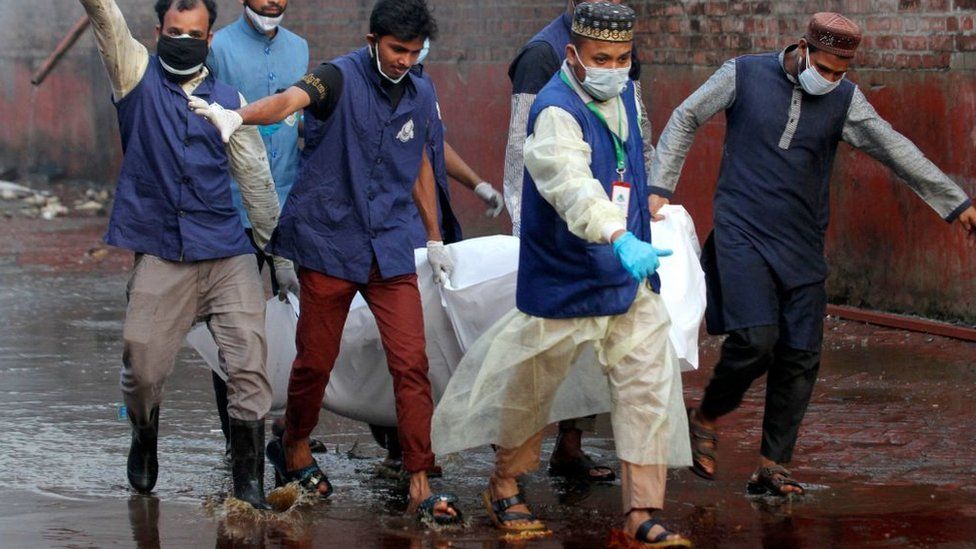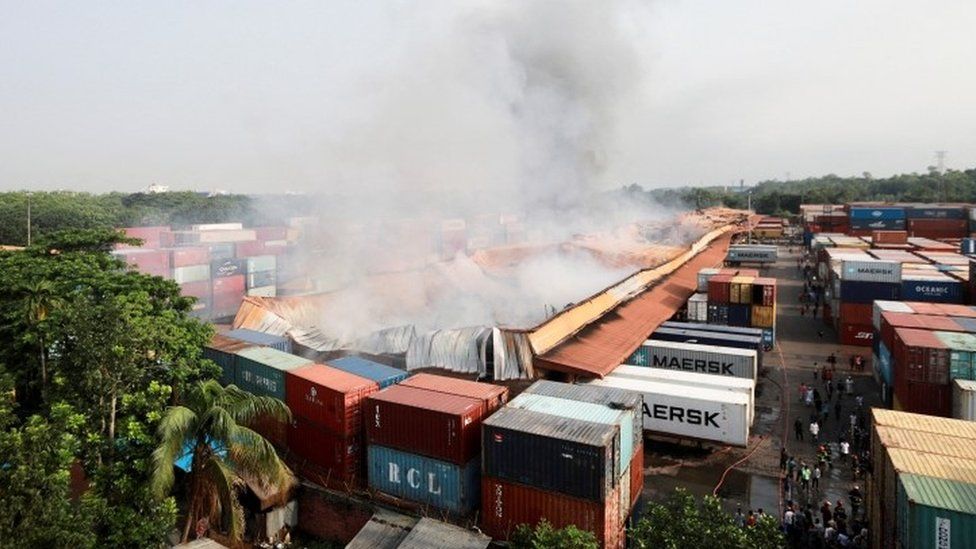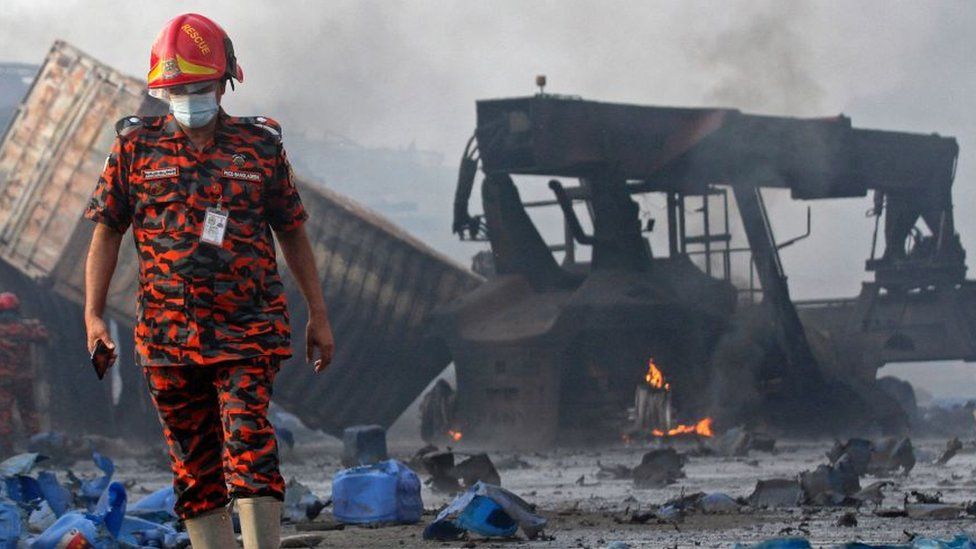बंगलादेशको चटगाउँ सहर नजिकै रहेको एउटा भण्डारण डिपोमा आगलागी र ठूलो विष्फोट हुँदा कम्तीमा ४९ जनाको मृत्यु भएको छ भने सयौं घाइते भएका छन् ।
सिताकुण्डको घटनास्थलमा सिपिङ कन्टेनर विस्फोट हुँदा आगो निभाउन सयौं मानिस पुगेका थिए । कतिपय कन्टेनरमा केमिकल राखिएको अनुमान गरिएको छ । बंगलादेशमा औद्योगिक आगलागीहरू सामान्य छन्, र प्रायः कमजोर सुरक्षा नियमहरूको कारण दोष लगाइन्छ।
घाइतेमध्ये धेरैको अवस्था गम्भीर रहेको र मृत्यु हुनेको संख्या बढ्न सक्ने बताइएको छ । यस क्षेत्रका अस्पतालहरू भरिएका छन्, मानिसहरूको भीडले हलवेमा उपचारको लागि पर्खिरहेका छन्। चिकित्सकहरुले रक्तदानका लागि अपिल गरेका छन् भने केही घाइतेलाई हेलिकप्टरबाट राजधानी ढाका लगिएको छ ।
A fire and a huge explosion have killed at least 49 people and injured hundreds more at a storage depot near the city of Chittagong, Bangladesh.
Hundreds of people had arrived to tackle the fire when a number of shipping containers exploded at the site in Sitakunda.
It is thought that chemicals were stored in some of the containers.
Industrial fires are common in Bangladesh, and are often blamed on poor safety regulations.
Many of the injured are said to be in a critical condition and the number of people killed is expected to rise.
Hospitals in the area are overwhelmed, with crowds of people waiting in hallways for treatment. Medics have appealed for blood donations and some of the injured have been airlifted to the capital, Dhaka.
The fire broke out at around 21:00 local time (15:00 GMT) on Saturday and hundreds of firefighters, police and volunteers quickly arrived on the scene.
As they tried to extinguish the blaze a huge explosion rocked the site, engulfing many of the rescuers in flames and throwing debris and people into the air.
"The explosion just threw me some 10 metres from where I was standing. My hands and legs are burnt," lorry driver Tofael Ahmed told AFP news agency.
Volunteers, some wearing only sandals on their feet, continued to bring bodies from the smouldering wreckage on Sunday morning.
Pictures of the aftermath show the twisted remains of metal shipping containers and the collapsed roof of a warehouse. A local journalist told the BBC that there was a pungent odour in the air.
At least five firefighters were killed in the blast and several more were injured. Many people are still missing, including journalists who were reporting on the fire before the explosion.
The blast was so large it was heard several kilometres away and shattered the windows of nearby buildings. One local shopkeeper told reporters that a piece of debris had flown half a kilometre and landed in his pond. He described seeing "fireballs falling like rain" after the explosion.

Bodies were still being taken from the scene on Sunday
Many people in Bangladesh are comparing the explosion to the huge blast that hit Beirut in 2020, says the BBC's Akbar Hossain in Dhaka. He says people have reported hearing the blast from 30-40km (19-25 miles) away.
Firefighters were still struggling to put out the fire on Sunday, with continued explosions making it more difficult, according to fire officials.
The army has deployed sandbags to prevent chemicals flowing into the Indian Ocean.
Around 4,000 containers were stored at the depot in Sitakunda, which is around 40km (25 miles) from Chittagong - Bangladesh's main sea port and second-largest city. Sitakunda acts as a transit point for goods travelling through the port.

The storage site held around 4,000 containers
A regional government official said the depot contained millions of dollars of garments waiting to be exported to Western retailers.
Bangladesh is a major supplier of clothing to the West and has prospered over the past decade to become the world's second largest exporter of garments.
But safety regulations are often ignored or poorly enforced, and there have been several large fires and other incidents at factories in recent years.
On Sunday, the Dhaka Tribune newspaper published a list of 12 industrial disasters - including fires, building collapses and chemical leaks - that have killed over 1,000 people since 2005.



प्रतिकृयाहरु